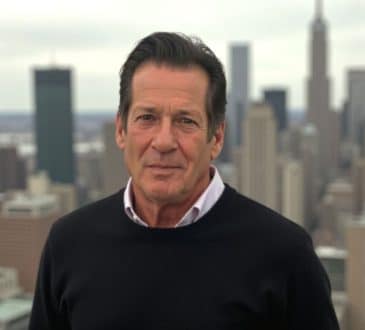A Conversation with Brian Scherner, RN, on Nursing, Leadership, and Community Health

Brian Scherner is a seasoned Registered Nurse based in Portland, Oregon, renowned for his dedicated approach to holistic wellness and patient-centered care. Born and raised in Portland, Brian holds a Bachelor of Science in Nursing from Oregon Health & Science University. His career began in critical care, where he honed his skills in managing complex medical conditions and providing emotional support to patients and their families. Over time, Brian transitioned to community health nursing, driven by a commitment to preventive care and health education. Currently, he excels as a nurse manager at a prominent Portland medical center, leading a team of nurses and fostering an environment of collaboration and growth.
Outside of his professional role, Brian Scherner is deeply involved in local health initiatives, volunteering at free clinics and wellness workshops to improve access to healthcare in underserved communities. He is also an active advocate for mental health awareness, often speaking at events to destigmatize mental health issues. In his free time, Brian enjoys exploring the natural landscapes of the Pacific Northwest, participating in outdoor activities such as hiking and kayaking, and indulging in Portland’s vibrant food scene. Through his career and volunteer work, Brian embodies the transformative power of compassionate nursing.
What inspired you to pursue a career in nursing?
From a young age, I was always drawn to helping others. Growing up in Portland, I was surrounded by a community that valued service and empathy. This environment nurtured my desire to make a tangible difference in people’s lives, and nursing seemed like the perfect avenue to fulfill that calling.
Can you describe a particularly impactful moment from your early days in critical care?
One of the most impactful moments came when I was able to help a family understand and cope with their loved one’s critical condition. Being able to provide not just medical care but also emotional support and clear communication during such a stressful time taught me the profound role nurses play in healthcare settings beyond just medical interventions.
What led to your transition from critical care to community health nursing?
After several years in critical care, I realized that I could have a broader impact on public health by focusing on prevention and education. Community health nursing allowed me to engage with diverse populations on a more personal level and address health disparities more directly, which was incredibly rewarding.
As a nurse manager, how do you foster a supportive and effective team environment?
I believe in leading by example and maintaining open lines of communication. It’s important to create a collaborative environment where every team member feels valued and empowered. I focus on mentorship and professional development opportunities to help each nurse grow and excel in their roles.
How do you manage the stress that comes with your job?
I make it a priority to maintain a healthy work-life balance. Engaging in outdoor activities and practicing mindfulness help me stay centered. I also believe in the power of community support, both within and outside the workplace, to alleviate the emotional toll of nursing.
What are some challenges you face in community health nursing, and how do you address them?
One major challenge is the diverse needs of our community, which require tailored approaches. I address this by staying informed about cultural competencies and leveraging local resources to enhance our care models. Constant learning and adaptation are key in meeting these challenges effectively.
Can you tell us about a volunteer project that has been particularly meaningful to you?
Volunteering at local free clinics has been incredibly fulfilling. It’s there that I see the immediate impact of providing accessible healthcare. These experiences reinforce the importance of our work and the direct effect it has on improving individual and community health.
Why is mental health advocacy important to you, and how do you promote mental health awareness?
Mental health is integral to overall wellness, yet it’s often overshadowed by physical health concerns. By speaking at local events and participating in awareness campaigns, I aim to reduce stigma and promote resources that support mental health, reinforcing that it’s okay to seek help.
What future innovations in nursing or healthcare are you most excited about?
I’m excited about the integration of technology in healthcare, particularly how telehealth can expand access to care. Innovations that enhance patient engagement and self-management, like mobile health apps, are promising tools that can revolutionize preventive care and chronic disease management.
What advice would you give to someone considering a career in nursing?
Nursing is both a challenging and profoundly rewarding field. My advice would be to embrace every learning opportunity and to approach this career with compassion and resilience. Always remember why you chose to become a nurse—to make a difference—and let that passion guide you through the tough moments.
Have you read?
Safest Countries in the World.
Most Productive Countries in the World.
Most peaceful countries in the world.
Most influential financial centers in the world.
Bring the best of the CEOWORLD magazine's global journalism to audiences in the United States and around the world. - Add CEOWORLD magazine to your Google News feed.
Follow CEOWORLD magazine headlines on: Google News, LinkedIn, Twitter, and Facebook.
Copyright 2025 The CEOWORLD magazine. All rights reserved. This material (and any extract from it) must not be copied, redistributed or placed on any website, without CEOWORLD magazine' prior written consent. For media queries, please contact: info@ceoworld.biz








